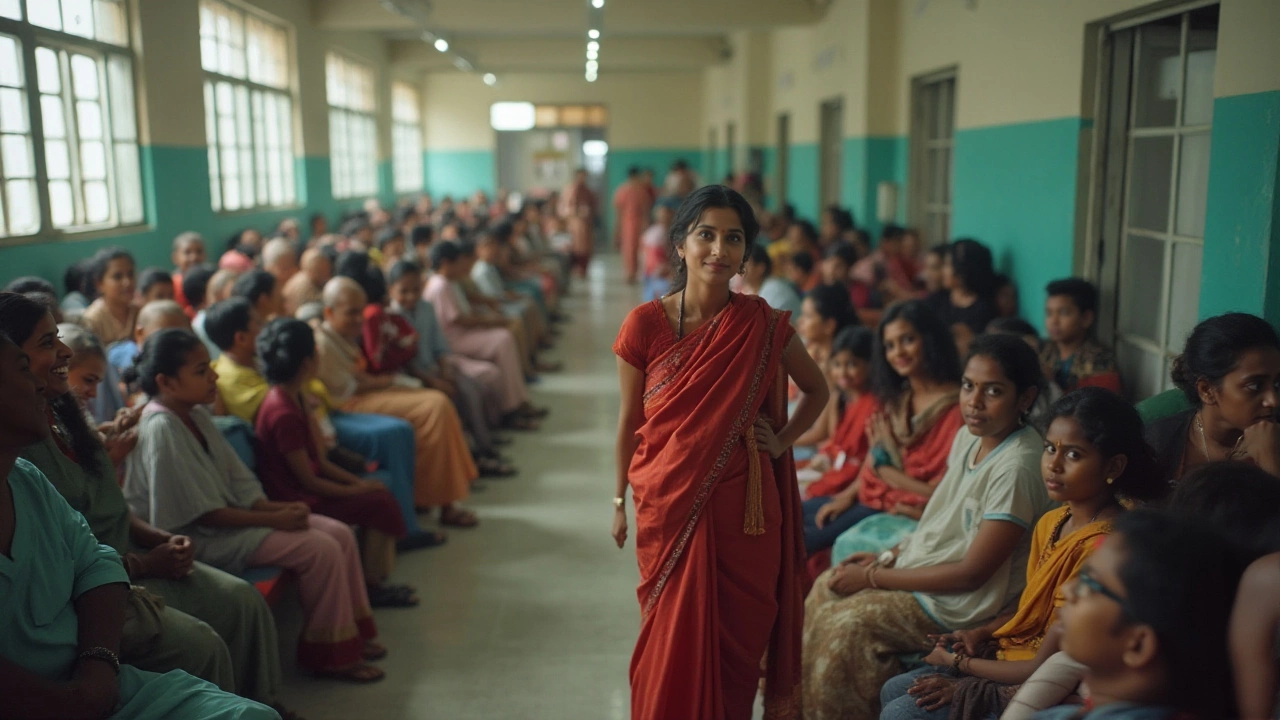Discover which U.S. state is financially toughest to live in, why high costs matter for medical tourism, and practical steps to ease the burden.
Read MoreMedical Tourism in India: Your Guide to Safe, Affordable Care
If you’re looking for quality treatment without breaking the bank, India is a top choice. Hospitals here use the latest tech, English‑speaking doctors, and prices that are a fraction of what you’d pay in the US or Europe. This guide walks you through the basics so you can feel confident before you book your flight.
Why Choose India for Your Treatment?
First, the cost savings are huge. A knee replacement that might run $30,000 elsewhere can be under $7,000 in India, even after travel costs. Second, many Indian hospitals have international accreditations (like JCI), which means they follow strict safety standards. Third, you’ll get a mix of modern medicine and traditional therapies if you want them – think physiotherapy combined with yoga or Ayurveda.
Finally, the travel experience is a bonus. Most major cities have good airports, and many hospitals offer concierge services to handle visas, airport pickups, and hotel bookings. That extra help can turn a stressful trip into a smooth one.
Steps to Plan a Successful Medical Trip
1. Research the procedure and hospital. Look for hospitals that specialize in what you need. Check doctor profiles, success rates, and patient reviews. A quick Google search plus a glance at the hospital’s website usually gives you enough info.
2. Get a clear cost estimate. Ask the hospital for a detailed quote that includes surgery, stay, medication, and any follow‑up care. Some centers also bundle travel and accommodation, which can simplify budgeting.
3. Sort out visas and paperwork. Most medical tourists use a standard tourist visa, but some hospitals help you apply for a medical visa if needed. Have your medical records ready – copies of scans, doctor notes, and a list of current medicines make the pre‑op consultation easier.
4. Plan your stay. Choose a hotel close to the hospital or one the hospital recommends. Many hospitals partner with hotels that offer discounts for patients and families. If you’re traveling alone, look for a place with good transport links and reliable Wi‑Fi.
5. Arrange a local companion. Having a friend or family member with you can help with language barriers and post‑op care. If that’s not possible, many hospitals have patient coordinators who speak English and can guide you through the recovery process.
6. Prepare for recovery. Ask the surgeon how long you’ll need to stay in India after the procedure. Some surgeries require only a few days, while others need a week or more. Pack light, comfortable clothing and any items that make you feel at home.
By following these steps, you reduce surprises and focus on healing.
Remember, the cheapest option isn’t always the best. Look for hospitals with clear accreditation, experienced surgeons, and good post‑op support. A little extra research can save you money and give you peace of mind.
Ready to start? Begin with a simple Google search: "best heart surgery hospital India" or "affordable dental implants India" and compare the top results. The right choice will give you quality care, lower costs, and a chance to explore a new culture while you recover.
Explore how genetics, lifestyle, and socio‑economic factors shape health across races, and why no single race is the healthiest. Includes data, comparisons, and practical tips.
Read MoreDiscover the world’s healthiest foods, why they rank top in nutrition, and how to add them to your diet, especially when traveling for medical tourism.
Read MoreEver wondered if you could feel relaxed and inspired during a hospital stay? Some U.S. hospitals don’t just heal bodies; they wow visitors with their looks. This article looks at the most beautiful hospital in the States, how its design makes a real difference, and why medical tourists flock there. Find honest tips if you’re thinking about getting treatment in a place that feels more like a resort than a clinic. If you want comfort, Instagrammable views, and top-notch healthcare rolled into one, you’re in the right spot.
Read MoreLooking for top-notch medical treatment abroad? Discover which country is leading the charge in healthcare excellence. This article explores why some nations excel in medical services and what factors contribute to their global reputation. Whether it's advanced technology, skilled professionals, or cost-effectiveness, find out what makes these countries stand out. Get practical tips on making the most of your medical journey.
Read MoreTraveling to Europe has its charm, but falling ill there? Not so much. From understanding your healthcare options to knowing how to access affordable treatment, being prepared can save you time, stress, and money. Discover practical tips for navigating the medical landscape in Europe and learn the essentials of health insurance coverage while abroad.
Read MoreThe article delves into the highest earning professionals within the realm of medical tourism. It explores which medical specialists earn top dollar and why, focusing on the intricate mix of expertise, demand, and destination. The piece also provides insight into how the medical tourism industry is reshaping healthcare salaries and attracting talent worldwide. By examining case studies and examining the latest trends, this article offers a valuable perspective on the lucrative careers awaiting doctors in this burgeoning sector.
Read MoreMedical tourism, while beneficial for patients seeking affordable care, can have negative impacts on the home and host countries' medical systems. The influx of foreign patients might strain local healthcare resources and affect service quality. Health tourists sometimes bring communicable diseases, which can spread in the community, posing public health challenges. Ethical issues arise when medical tourism prioritizes foreign patients over locals, leading to healthcare inequality. Addressing these issues requires balanced health policies and international cooperation.
Read More











